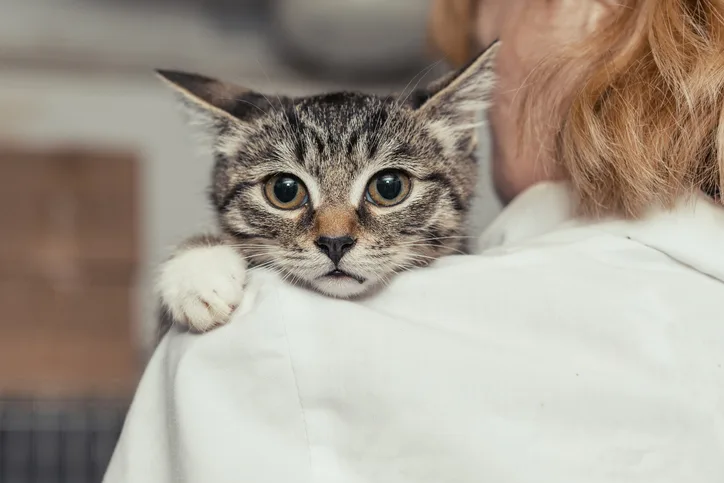Short-Term Anxiolysis for Feline Visits
Glenn A. Olah, DVM, PhD, DABVP (Feline), Winn Feline Foundation, Albuquerque Cat Clinic, Albuquerque, New Mexico

In the Literature
van Haaften KA, Forsythe LR, Stelow EA, Bain MJ. Effects of a single preappointment dose of gabapentin on signs of stress in cats during transportation and veterinary examination. J Am Vet Med Assoc. 2017;251(10):1175-1181.
The Research …
Stress associated with transportation, examination, and diagnostic procedures often deters owners from bringing their cats to the clinic to receive regular veterinary care. Multiple strategies have been explored to reduce stress and increase cat cooperation during veterinary visits.
Gabapentin has traditionally been prescribed as an adjuvant for seizure control and chronic or neuropathic pain.1-4 Its exact mechanism is not entirely clear. Studies on gabapentin’s efficacy as an anxiolytic agent and its safety in cats are scant, limited to only one recent study.5
A random, blinded crossover study was conducted to determine whether a single 100-mg oral dose of gabapentin would be effective in reducing signs of stress and aggression during travel and improving cooperation during physical examination. Twenty clinically healthy cats with a history of fractious behavior or signs of stress during veterinary examination were included. Cats were randomly assigned to receive 100-mg gabapentin (13-29.4 mg/kg PO) or placebo prior to a veterinary visit; the opposite treatment was given prior to a second visit one week later. The assigned capsule was orally administered by owners 90 minutes prior to placing the cat in a carrier and transporting it to the veterinary clinic.
Owner-assessed cat stress scores during transportation and veterinary examination, as well as veterinarian-assessed cooperation (compliance) scores, were significantly lower in cats that received gabapentin as compared with cats that received placebo. Owner-perceived peak effect of gabapentin occured approximately 2 to 3 hours postadministration. Adverse effects occurred in 6 cats and included vomiting (n = 2), hypersalivation (n = 1), muscle fasciculation (n = 2), and anisocoria (n = 1). Follow-up with owners regarding their continued observations upon returning home was available for 15 cats; sedation was reported in 12 (80%) and ataxia (concurrent with sedation) in 6 (40%). All effects resolved within 8 hours of gabapentin administration.
The authors concluded that oral administration of 100-mg gabapentin to cats 90 minutes before travel led to a significant reduction in stress-related behaviors during transportation and examination and in attenuated aggression, thereby increasing cooperation during examination. The study authors further recommended that gabapentin at 20 mg/kg PO (vs 100 mg/cat) be given approximately 2 to 3 hours before transportation to the clinic for short-term anxiolysis. Owners should be warned about the potential for ataxia, and cats should be confined indoors until the effects resolve.
This study did not include additional diagnostics to assess each cat’s health (eg, urinalysis, FeLV/FIV status); thus, stable systemic disease may have been missed. In mice, rats, monkeys, and humans, gabapentin is not metabolized or protein-bound and is cleared via renal excretion; thus, it is reasonable to consider a dose reduction in cats with kidney disease.6,7
… The Takeaways
Key pearls to put into practice:
Administering gabapentin at 20 mg/kg PO approximately 2 to 3 hours before placing cats in a travel carrier may reduce stress. A dose reduction in cats with kidney disease (or possibly liver disease) should be considered until further gabapentin metabolism data in cats are available.
Fear Free methods and minimum, low-stress, gentle handling are recommended (see Suggested Reading).
Common side effects include ataxia, so cats should be kept indoors for at least 6 to 8 hours postadministration.
You are reading 2-Minute Takeaways, a research summary resource presented by Clinician’s Brief. Clinician’s Brief does not conduct primary research.